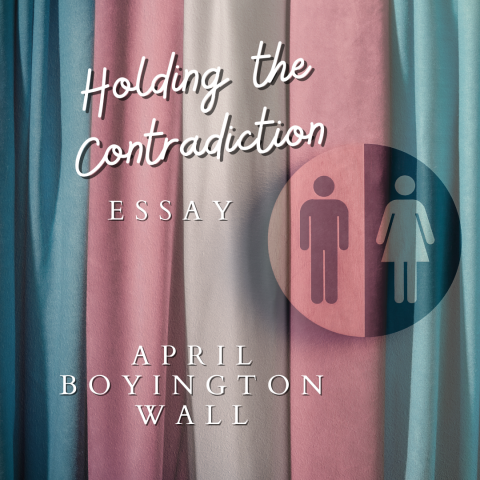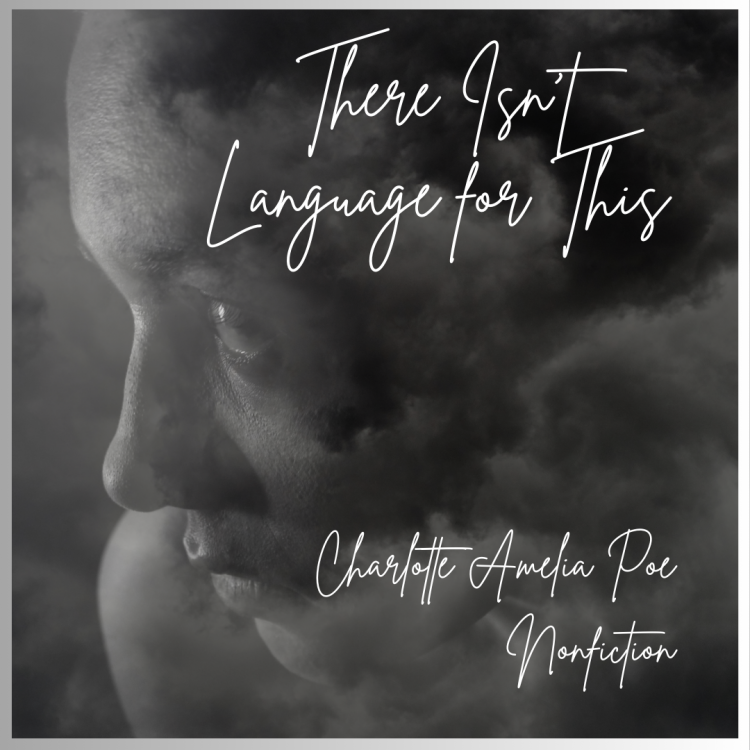Holding the Contradiction

Image created onCanva
Recently I wrote a satirical piece on the language policing around gender identity. It was inspired in part by a conversation reported to me by another social justice advocate who had been told she could no longer use the terms “woman” and “mother.”
Her response: “I am proud to be a woman. Proud to be a mother. After living for 65 years with patriarchy, I will not have more rules imposed about who I am and what I can be.”
Make no mistake – I am gay-positive and trans-positive. So is my friend. We have empathy and compassion for those who have been marginalised and ridiculed around their gender identity. It breaks my heart to hear and read about the violence, put-downs, exclusions, bullying and microaggressions experienced by those who don’t enjoy white heterosexual privilege and not seeing or reading about themselves except as stereotypes in print, TV, or movies.
I count myself as an ally. I want to help make changes, not block progress.
Yet the piece I wrote satirised the new rigidity in language norms and called out some of the absurdity that sometimes drives advocates.
This stuff isn’t new. As a relatively early feminist, I recall that the word itself was considered laughable, then pejorative before it became mainstream. I also remember the internal struggles. Lesbians felt marginalised, not heard. Rightly so. On some level, I got it. But then straight women were labelled traitors, sleeping with the enemy, and sympathetic males pilloried because they dared to verbally engage in the dialogue.
Identity conflicts have also infected conversations about race and religion. If you don’t have the right credentials, you have no right to speak.
I get it. I understand how cultures have been appropriated, how dominant narratives, cultural norms and language around gender, race, culture, and religion have ignored and lacerated those who were told they had no right to speak, who were ridiculed, beaten, imprisoned and treated as pariahs because they were not the ones in power.
But…
Where is the dialogue now? Shutting down voices that are perceived as critical is the new normal. Questioning early surgical interventions for adolescents is considered by some as transphobic. Writers and podcasters mourn the loss of the tomboy, since not conforming to hyper femininity in dress or lifestyle means that one must be slotted into the category of lesbian or trans.
In the name of progress, progressives have enforced new binary categories. Voicing disagreement is similarly branded. Accusations fly. Asking questions, challenging, identifying absurdities like insisting on terms like chest feeding – you are an enemy. The Right is quick to pick it up and use it. If you aren’t with us, you are against us.
I was proud of the term “woke,” recognizing how I had awakened to my privilege. Now the term is a source of ridicule.
This language orthodoxy is public and private. No one dares speak or even poke their head above the parapet. To be seen is to be labelled.
It is more of the same, only the roles are topsy turvy. Voice is now shackled in the name of freedom.
Writers and comedians with more credibility than me have been pilloried for less. The Nigerian writer Chimamanda Ngozi Adichie recently commented that language orthodoxy is creating such self censorship that Salmon Rushdie’s 1988 novel, “The Satanic Verses” would probably never be published today – or possibly even written. Rushdie made similar comments himself in 2012.
So where can I show my funny piece? Do I dare submit it for publication?
When I was a management consultant facilitating corporate strategic planning sessions, I would challenge my clients to address the complexity of their organisation and their environment. We would wrestle to embrace paradoxes rather than slip in facile either/or assessments or strategies.
As poet Maureen Buchanan Jones says, we can “examine difficulties like turning a prism.” For my clients holding the contradiction would be their strength going forward with robust yet resilient approaches for a future that was unpredictable.
It wasn’t fun. Many wanted to slip into the easy stream – something simpler, seeing the world as good or bad, right or wrong, long-term or short-term, inexpensive or costly. Clinging to the very mindsets that have kept us all trapped.
Instead, I coached them to hang in, not run. Not hide. Get comfortable with the contradictions, with the dilemmas they present. Otherwise, we create another version of what we want to leave behind.
So I am daring now to speak.
I think.
Do I need to take shelter?
Need more great reads? Check out these fantastic pieces by the authors at the MockingOwl Roost.
- Grey Pearl Accordion – Positivity Corner
- Perspective – Poetry
- Elements of Freedom – Poetry
- A Sighting – Fiction
- Glass Shell – Poetry Reading
- Secret Garden – Poetry
- When the World Flipped Over – Poetry

April Boyington Wall
Initially trained as a social worker and therapist, April moved into business consulting early in her career and taught graduate courses in management. Over the years she has written for academic and business publications as well as numerous in-house documents for organizations across Canada and the United States. She has just begun the journey of creative writing, but has been published in Women Writing History in a Global Pandemic, an anthology by the International Women’s Writers Guild, and the Journal of Expressive Writing. She lives in Ontario, Canada with her husband Richard Weisman.





2 Comments
[…] Holding the Contradiction – Creative nonfiction […]
[…] Holding the Contradiction […]